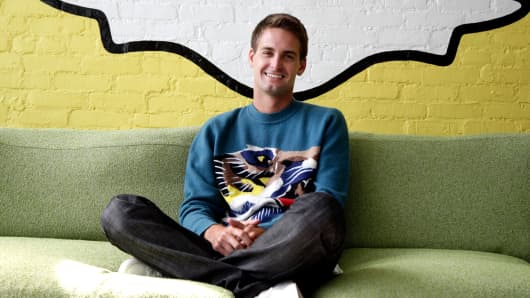Snap Follows Facebook Back To Genesis
Quote from Ndubuisi Ekekwe on January 19, 2018, 4:14 PM
Snap is now following Facebook back to the root of human social connection. The king of disappearing contents is trimming its content division. Yes, the company has cut about 24 employees who work with major publishers to create original videos. This is a new shift in the industry, as social media companies begin new redesigns, to get back to the human element, and reduce the intrusive nature of brands and publishers.
Facebook did exactly the same few days ago when it noted that it would favor contents from friends and families over those from brands and publishers.
Facebook said it plans to alter its algorithm to favor content from friends and families over publishers and brands. In a post published yesterday (Jan. 11), CEO Mark Zuckerberg wrote the company’s objective was no longer primarily to surface “relevant content” for Facebook’s 2 billion users, but to prioritize meaningful social interactions that benefit them.
For Snap to have made this decision, it could have noticed that people were not watching those videos. The young people in its ecosystem probably prefer videos from friends than those packaged with publishers.
The trajectory is evident: you go to Snap or Facebook, to connect with friends and families, and not for one company to start luring you to spend money. Sure, they would need to sell ads but they must have an optimal balance.
Cleaning the swamp is happening everywhere. HuffPost USA is also phasing out its contributor network, cutting thousands of people that write in the portal for free. Simply, the company thinks it does not need thousands to be talking with few listening. HuffPost would lose massive traffic as a result of this decision but would surely get more engaged userbase.
This is a return to genesis as these entities want to get back to the very thing that made them successful: value for users even when it means losing money from publishers.

Snap is now following Facebook back to the root of human social connection. The king of disappearing contents is trimming its content division. Yes, the company has cut about 24 employees who work with major publishers to create original videos. This is a new shift in the industry, as social media companies begin new redesigns, to get back to the human element, and reduce the intrusive nature of brands and publishers.
Facebook did exactly the same few days ago when it noted that it would favor contents from friends and families over those from brands and publishers.
Facebook said it plans to alter its algorithm to favor content from friends and families over publishers and brands. In a post published yesterday (Jan. 11), CEO Mark Zuckerberg wrote the company’s objective was no longer primarily to surface “relevant content” for Facebook’s 2 billion users, but to prioritize meaningful social interactions that benefit them.
For Snap to have made this decision, it could have noticed that people were not watching those videos. The young people in its ecosystem probably prefer videos from friends than those packaged with publishers.
Tekedia Mini-MBA edition 16 (Feb 10 – May 3, 2025) opens registrations; register today for early bird discounts.
Tekedia AI in Business Masterclass opens registrations here.
Join Tekedia Capital Syndicate and invest in Africa’s finest startups here.
The trajectory is evident: you go to Snap or Facebook, to connect with friends and families, and not for one company to start luring you to spend money. Sure, they would need to sell ads but they must have an optimal balance.
Cleaning the swamp is happening everywhere. HuffPost USA is also phasing out its contributor network, cutting thousands of people that write in the portal for free. Simply, the company thinks it does not need thousands to be talking with few listening. HuffPost would lose massive traffic as a result of this decision but would surely get more engaged userbase.
This is a return to genesis as these entities want to get back to the very thing that made them successful: value for users even when it means losing money from publishers.
Quote from Francis Oguaju on January 20, 2018, 5:32 AMMany more entities need to go back to what made successful and admirable in the first place. We rarely have companies that are truly admirable, maybe change in philosophy or obsession for profit contributed largely to it. We used to hear that the purpose of business enterprise is to 'satisfy the customers'; I don't know how many businesses who still believe and practise this mantra. Too many people are talking, few are listening; too many businesses are advertising/selling, few are viewing/buying. It's a state of disequilibrium and dislocation, hopefully many more businesses will come back to their senses.
Many more entities need to go back to what made successful and admirable in the first place. We rarely have companies that are truly admirable, maybe change in philosophy or obsession for profit contributed largely to it. We used to hear that the purpose of business enterprise is to 'satisfy the customers'; I don't know how many businesses who still believe and practise this mantra. Too many people are talking, few are listening; too many businesses are advertising/selling, few are viewing/buying. It's a state of disequilibrium and dislocation, hopefully many more businesses will come back to their senses.


